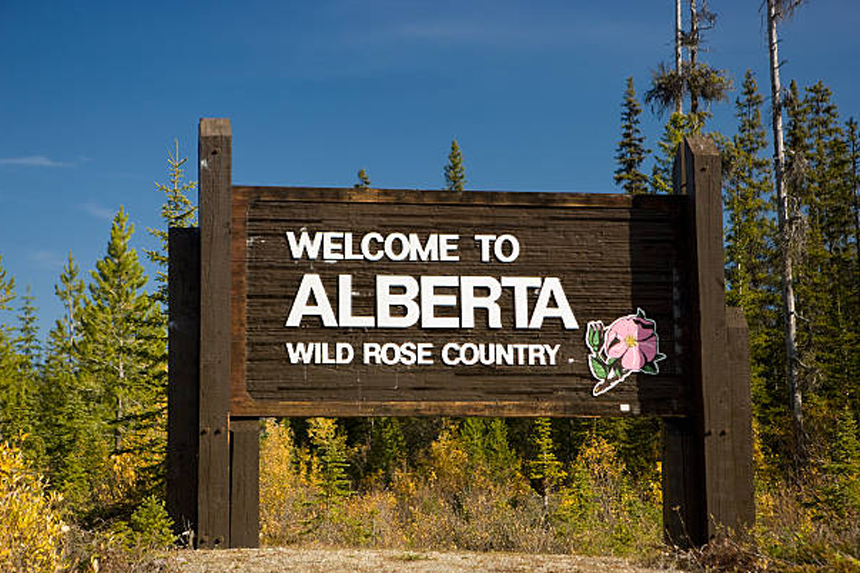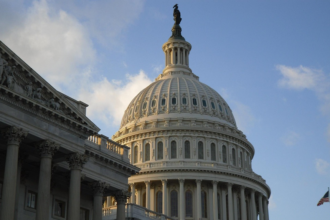Anxiety about President-elect Donald Trump’s vow to levy a 25% tax on Canadian exports is growing in Alberta, a region wealthy in oil. While concurrently increasing expenses for US consumers, Canadian lawmakers and energy experts worry that such a hefty charge might harm the country’s economy.
“Canada has no choice in this,” a former energy executive based in Albert said. It has to find an accommodation with Trump.”
On Monday, Trump revealed intentions to apply an across-the-board tariff on commodities from Mexico and Canada upon assuming office in January. No indication is that oil and gas would be included in this all-encompassing action.
What Might the Effects Be for Canada's Economy?
Industry analysts say the planned charge may significantly lower Canada’s oil output. Such policies could affect the nation and cause significant employment losses in Albertine.
“The fallout wouldn’t stop at Albert’s borders,” one energy executive said. “Cash transfers sponsored by wealthier provinces like Alberta help Canada’s less developed areas. Should Alberta’s energy income drop, the nation will feel the knock-on consequences.”
Further complicating matters is worry over possible monetary volatility. “A tariff of this scale could devalue the Canadian dollar when it’s already struggling due to domestic economic factors,” the analyst said.
They emphasized Canada’s dependency on its southern neighbour: “Keep in mind, 80% of Canada’s trade is with the United States, and most of that trade is in hydrocarbons. Canadians cannot escape their close relationship with the US.
How Are US Companies Reacting to the Tariff Threat?
Influential sector organization American Fuel and Petrochemical Manufacturers ( AFPM) has advised Trump to exclude oil and gas from tariffs. The AFPM underlined Canadian crude’s vital role in the US energy supply network.
“Crude oil is to refineries what flour is to bakeries,” the AFPM remarked. “This is our main input cost and feedstock. Should those feedstocks become much more costly, the total cost of producing gasoline here in the United States would likewise change.
Even though it is the top crude oil and natural gas producer, the US depends on Canadian imports to meet regional energy demands. Some places, like California, the northeast, and portions of the Midwest, need more infrastructure or pipeline capacity to rely on home production.
The AFPM claims that 40% of the crude processed in US refineries is imported; Canada provides the majority. Midwestern refineries mainly rely on Canadian oil mixes specifically designed for their operations.
“Without depending on overseas sources that would erode US energy security, there is no easy replacement for Canadian crude,” the group noted.
How might US consumers be impacted?
Experts say higher running costs for Midwest refineries resulting from tariffs on Canadian oil could eventually be passed on to consumers. According to estimates from a Chicago-based gas price expert, States like Minnesota, Wisconsin, and Michigan could see gas prices increase by as much as 75 cents per gallon.
“These higher prices won’t just hit drivers,” the expert pointed out on X, formerly Twitter. “They could also raise expenses for goods hauliers and airlines, producing a domino effect in the economy.”
Such an increase would contradict Trump’s campaign pledges to lower energy costs. Trump promised during his campaign to cut gasoline prices to less than $2 a gallon. In late November, the national average for regular gasoline was about $3 a gallon.
Can Trade Policies and Energy Security Coexist?
Trump’s energy approach has concentrated on raising US energy independence through domestic drilling and lessening dependence on foreign oil. Nonetheless, experts believe the suggested tariffs might be a negotiating tool to reach more general objectives, like better border security.
Trump has said that the tariffs might stay in place until Mexico and Canada act to stop drug trafficking across their borders and illegal immigration.
How is Canada getting ready to respond?
Prime Minister Justin Trudeau has promised to present a united “Team Canada” front to engage with the new government. To handle the problem, Trudeau called an emergency meeting on Wednesday, which included representatives of provinces and territories.
Alberta’s top official, Danielle Smith, promised her province would “work aggressively” to interact with US colleagues and underline the reciprocal advantages of close energy connections.
“Trump and the tens of millions of Americans that voted for him have valid concerns related to border security,” Smith said. As a demonstration of good faith, she and other premiers have advised Trudeau to create a thorough border security strategy.
Smith also disclosed that Alberta is considering forming specialized sheriff teams to guard its Montana shared border.
Why in Canadian negotiations is urgency vital?
Canadian analysts say that time is of the essence. One energy analyst recommended that Canadian officials prioritize removing the tariff risk from the table.
With Alberta at the core of this economic instability, the province and the country will be tested critically on their capacity to negotiate this developing crisis. Knowing that the stakes are significant on both sides of the border, US businesses and consumers wait to clarify how Trump’s tariff policy will be created.
Apple Warns Users of iPhone Spyware Attacks—What You Need to Know








